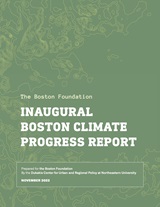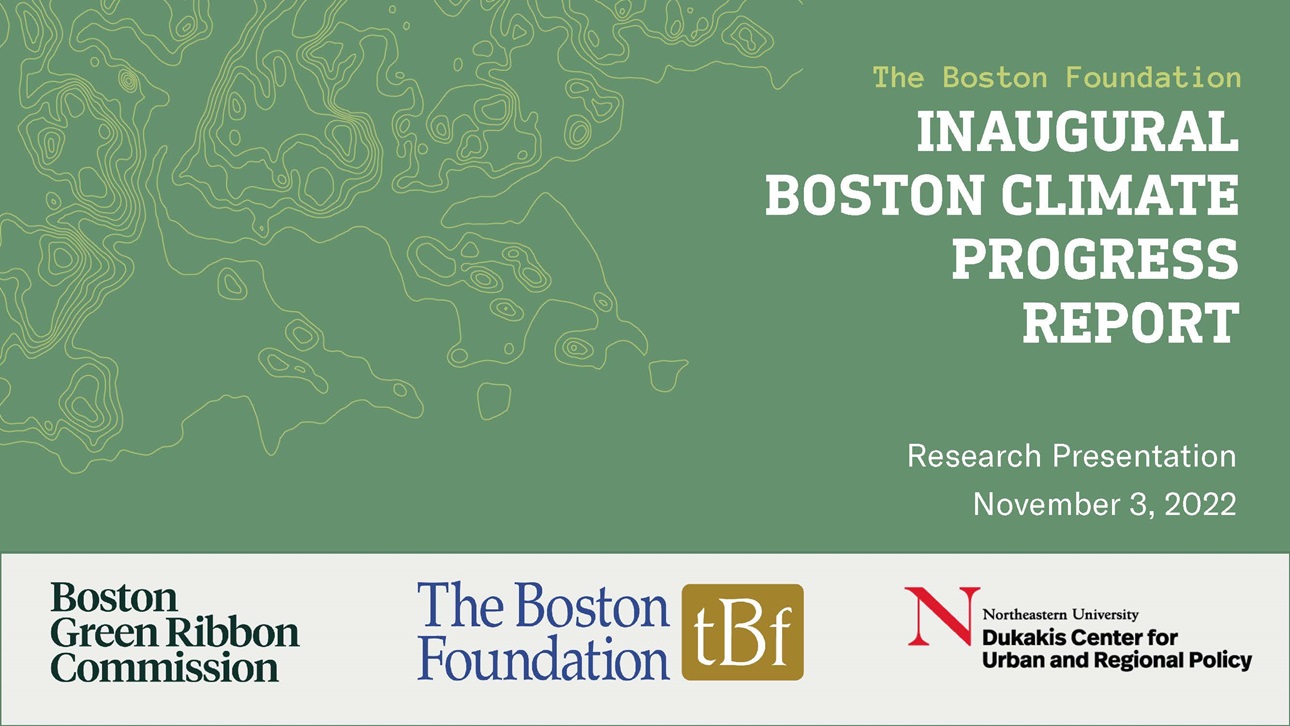The Boston Foundation hosted a virtual forum to discuss The Inaugural Boston Climate Progress Report, a first-of-its-kind report on Boston’s collective progress toward being a carbon-neutral city by 2050. The report was prepared for the Boston Foundation by researchers at Northeastern University’s Dukakis Center for Urban and Regional Policy, and findings spotlight that while the city has made notable progress in some areas, a variety of obstacles will make meeting that goal difficult.
After a welcome from Boston Foundation Board Director and State Street President and CEO Ron O’Hanley, Ted Landsmark introduced the lead authors of the Inaugural Boston Climate Progress Report to present highlights of their research. Landsmark, Director of the Dukakis Center for Urban and Regional Policy at Northeastern University, added a personal reflection that echoed elements of the report. He said he appreciated the findings from three approaches: as a professor of public policy, surrounded by students and others who feel the urgency of the climate crisis; as a policymaker with the Boston Planning & Development Agency, having to balance revenue generation vs. environmental impact in private development in Boston; and as a homeowner, making efficiency improvements and realizing how their scope and complexity can put them out of reach for most residents. The report stresses the overlapping fields in which our climate progress must play out, and that people across multiple roles must be part of the work.
Joan Fitzgerald, Professor of Public Policy and Urban Affairs at the Dukakis Center, and Michael Walsh, Partner & Director of Policy Research at Groundwork Data, shared a few key points from their comprehensive report, including where Boston is doing well and where it needs to ramp up efforts. As Fitzgerald noted, Boston now has multiple plans for elements of climate change mitigation and preparedness, and is one of few cities in the country that assesses its own progress on climate action plans. This report goes beyond assessing numbers of emissions reduced versus reductions planned, and identifies what barriers are slowing our progress. It finds nine common obstacles, from funding gaps and technical feasibility to conflicting interests and inertia. These get in the way of achieving a dozen outcomes the authors defined as key to advancing on Boston’s three basic goals: emissions reduction, climate resilience, and equity. Any number of “big lifts”—long-term, ambitious, interdisciplinary efforts to make systems changes—are called for to push through these obstacles and the report offers four to prioritize: electrifying Boston’s small buildings, strengthening the local energy grid (to handle all the coming electrification), building coastal resilience, and reparative planning for frontline communities.


